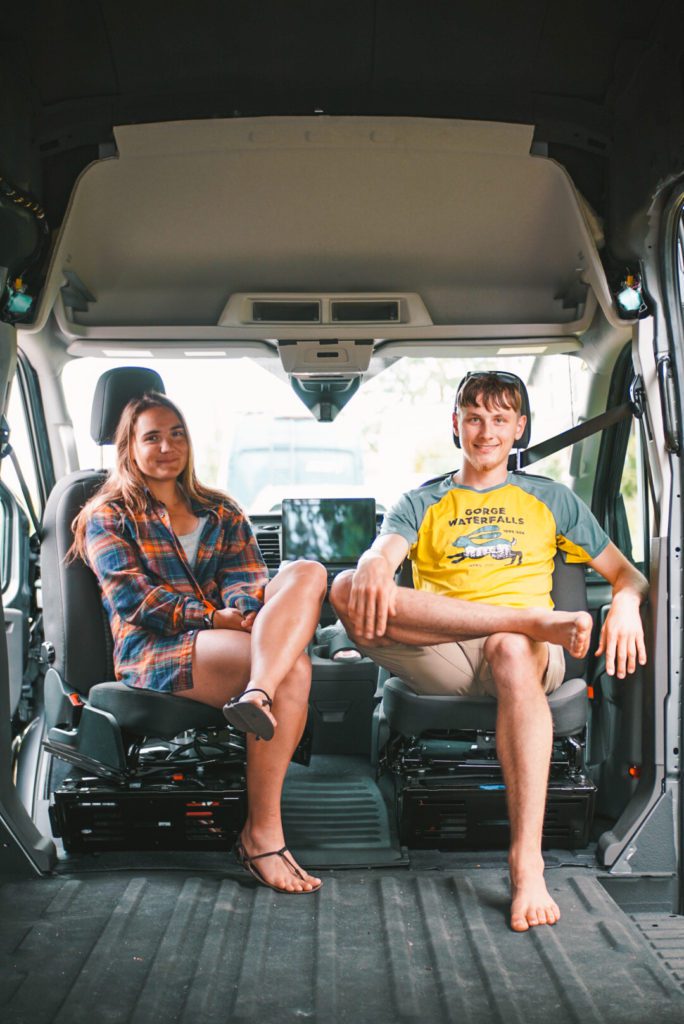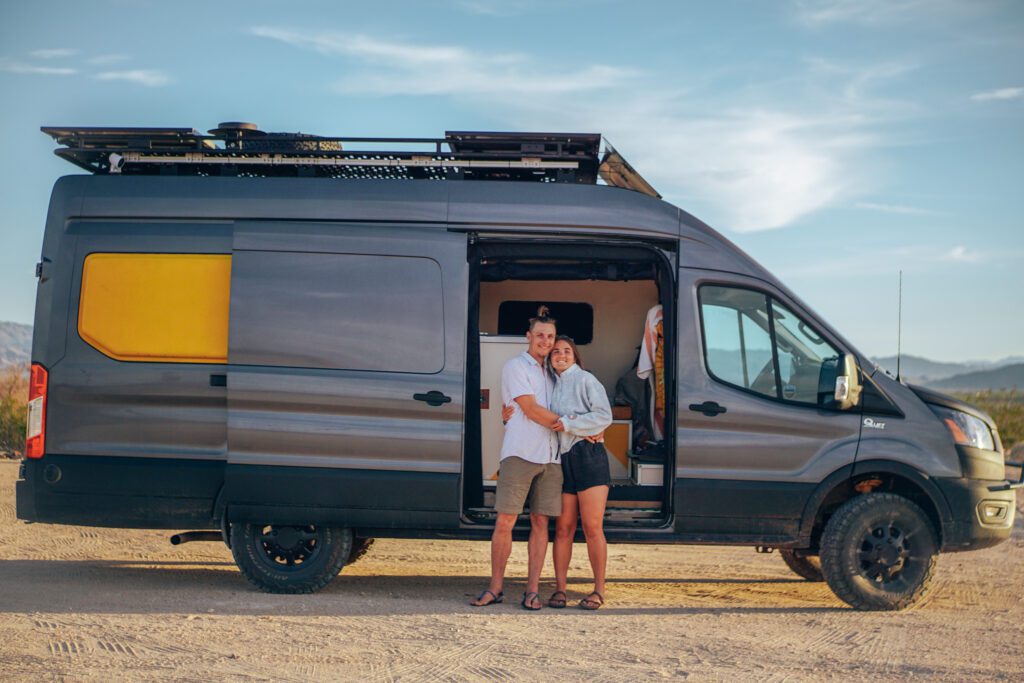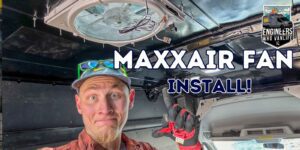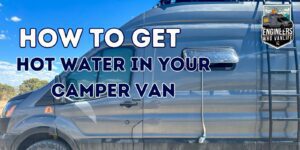NEW!! Camper Van Weight Considerations
Hey! If you are here to learn about camper van weight considerations… we released a more in depth guide that breaks down our personal camper van buildout…..
Pssst! We have a new & more in depth guide
to Campervan Conversion Weight here!
How Much Does Our Van Buildout Weigh?
Our first DIY van build weighed in at 8,450 pounds with a GVWR (gross vehicle weight rating) of 9,500 pounds. That means that even after we had all our personal items loaded, our water tanks filled up, our 31 gallon gas tank full, and of course, us on board, we had over 1000 pounds to spare.
In fact, this weight is incredibly low compared to many van builds that we have polled on Instagram. Most coming in quite near, if not over, their van chassises GWVR. So, what does this mean? Let’s dive in to why this matters and how we accomplished a light, but complete, DIY van buildout. First things first, a definition:
GVWR
Gross Vehicle Weight Rating is the maximum allowed weight of the vehicle fully loaded. This includes the vehicles curb weight, everything on board, and yes, YOU. You can simply measure your GVWR by driving over a truck weigh station.

Why Campervan Conversion Weight Matters
Your campervan conversion weight is going to get closer and closer to your GVWR as your build continues. So, it is extremely important to pay attention to this as the rating is there for a reason and it is your responsibility to stay under it! Not only does going over your GVWR decrease your fuel economy and efficiency but it creates safety concerns. These safety concerns include braking performance, vehicle stability, and vehicle handling.
And, I think it goes without saying, but exceeding your GVWR will also wear quicker on your chassis parts including drive train, engine, and brakes.
TLDR: The more your van weighs, the harder it is to move efficiently and safely. Obey your GVWR!
How To Design for a Lighter Campervan Conversion
Firstly, this might sound obvious, but we have heard from people that they were never told this, think about your weight at all steps of your van build. Everything you add to your van buildout weighs something and the small things will add up quickly. So, yes, general awareness is the first step.
Secondly, the biggest culprit of campervan conversion weight: wood. The number one reason our van buildout is light, is because we chose to build the skeleton and framing entirely with extruded aluminum (80/20). We highly recommend using this where you feel comfortable as it is not only lighter, but stronger. We have a full guide to building a van with extruded aluminum if you are interested. (more of these coming with our second build)
Wood is really dense so even if you choose to not use any 80/20, you should be really mindful of where you actually need the wood. This circles back to the “think about it” tip. Do you need it on the back of your cabinet and galleys? Probably not. Can you get away with using curtains or ezcool wrapped in fabric for some walls? Maybe!

Campervan Conversion Weight Factors
Besides wood, the two second heaviest parts of your van build will be your fresh water tank, and your electrical system. The general consensus here is to disperse this weight over your rear axle. So, for example, you could center your fresh water tank over your back left wheel and over your back right wheel arrange your electrical system.
Before we go on, let’s begin by getting your fresh water tank calculation. Water weighs 8 pounds per gallon. We have a 32 gallon fresh water tank and 7 gallon hot water tank so we carry about 312 pounds of water when full. This is heavy!
If you just have a few jugs of water and a smaller electrical system it is not going to be that important. But with 300 pounds of water and ~150 pounds of electrical equipment, it does matter.
Recommend Reading: Thorough Campervan Conversion Weight Breakdown
Off-balance DIY Van Build
The general principle is to prioritize keeping heavy weight items over the rear axle and not having wildly different weights on the left and right side of your van. It is also worth noting that you want to keep your vertical center of gravity low. This is usually what happens naturally in a campervan conversion as you aren’t mounting your water tank to your ceiling (gravity.. duh).
BONUS: over the wheel well water tank
To really truly have your fresh water in the right spot we recommend an over the wheel well water tank. We purchased ours at NW Conversions and highly recommend them for top quality and engineering. You could place your rectangular water tank next to your wheel well but you will also lose quite a bit of space, the over the wheel well ones optimize that awkward space perfectly.

Campervan Conversion Weight Considerations Explained
In summary, the lighter you can make your tiny home on wheels, the more efficient you will move (haha- the ultra runner is us is truly coming out there…). You absolutely do not need to cut corners to cut weight as if you make the right choices, being under your GVWR is quite easy. The best ways to make a lighter van build are to be aware of it with each piece you add, build with alternate materials than wood where it works, or simply buildout your van completely with 80/20!
Head here to read in detail our
Campervan Conversion Weight Breakdown
Happy Building!
Thanks for being here! Happy building!
Eric + Colby
✉️ Join our mailing list for more content!
🙏🏽 If you are looking for more 1:1 van build help, we are here to help via Consulting or Travel Van Building.
[Start Here] Beginner Guides:






